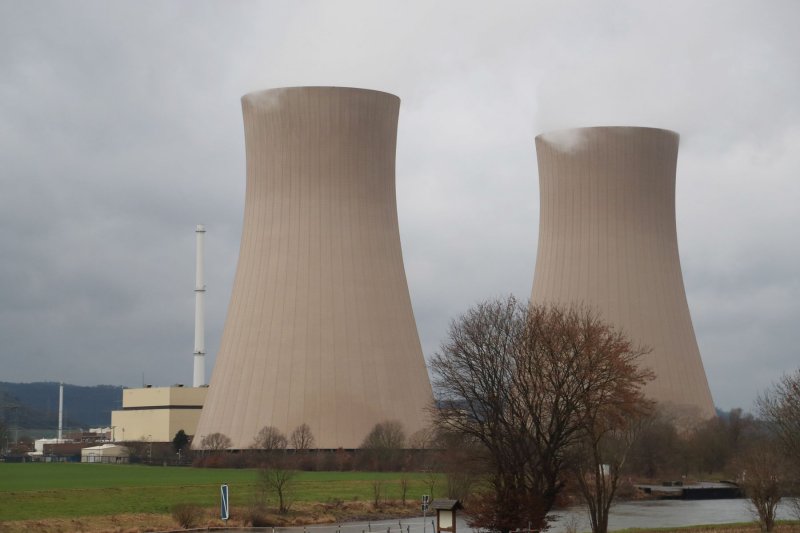Even as it searches for ways to trim costs, the British government said it was still pursuing nuclear power as part of its energy transition strategy. File photo by Focke Strangmann/EPA-EFE
Nov. 4 (UPI) -- Despite looking for cost-cutting measures, the British governments said Friday it has no plans to scrap the development of a new nuclear power plant that carries a $33 billion price tag.
Nuclear power fell out of favor in the wake of the Fukushima disaster in Japan in 2011. But the so-called energy transition -- the pivot away from fossil fuels -- has put it back in play.
During his tenure, former British Prime Minister Boris Johnson said he wanted to see eight new nuclear facilities built within the next eight years, putting nuclear power at the center of his energy transition strategy. Most of the operational nuclear power stations in the U.K. were expected to reach the end of their planned life span by the end of this decade.
Faced with a $56 billion gap in financing, Prime Minister Rishi Sunak is working to trim spending. A spokesperson for his office told the BBC that every major project was now under review as part of the cost-cutting efforts, but nuclear power would be spared.
Talks with private developers for the planned Sizewell C facility -- slated for the Suffolk coast -- have been "constructive" and the government "hoped to get a deal over the line as soon as possible," the government spokesperson said.
The British taxpayer will provide about 20% of the bill for Sizewell C, The Guardian newspaper added in a separate report.
If built, the 3.2 gigawatt, two-reactor Sizewell C facility would provide enough power to meet 7% of the nation's energy needs, though it might not be ready until at least 2030.
Sunak on the campaign trail championed reforms on licensing laws that would permit more nuclear energy as part of an effort to achieve energy independence by 2045.
As a prime minister inheriting crises ranging from energy-related issues to financial ones, he said initially he was too distracted by domestic affairs to attend next week's environmental summit in Egypt, but changed his tune amid pressing energy security measures.
The COP27 climate summit gets underway next week in Sharm El-Sheik.















